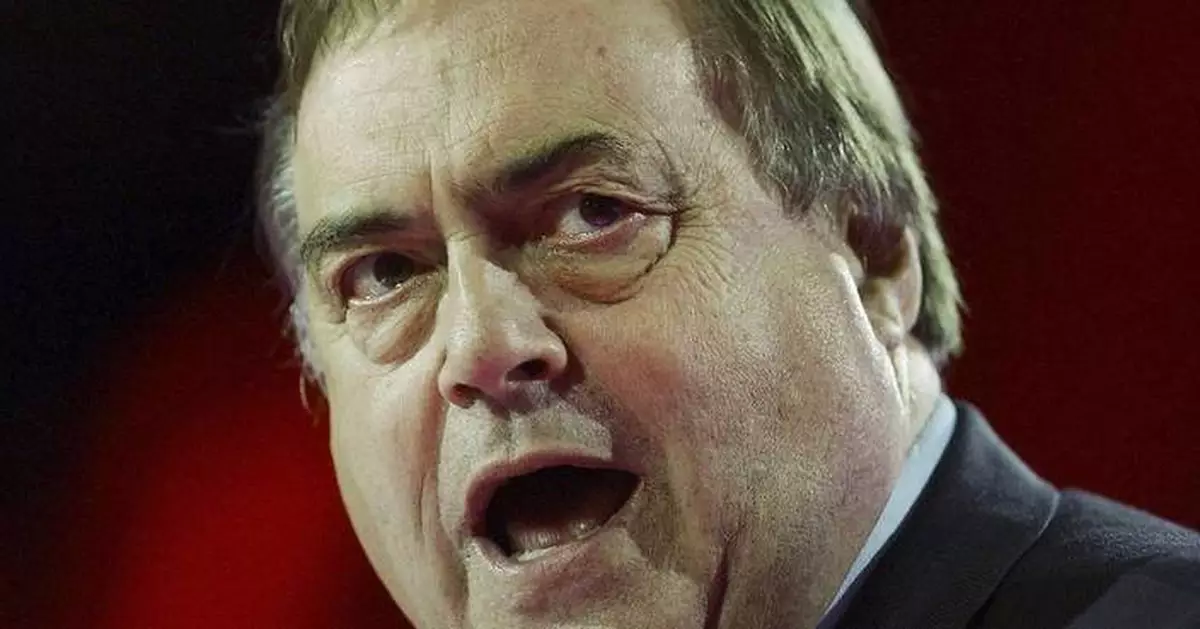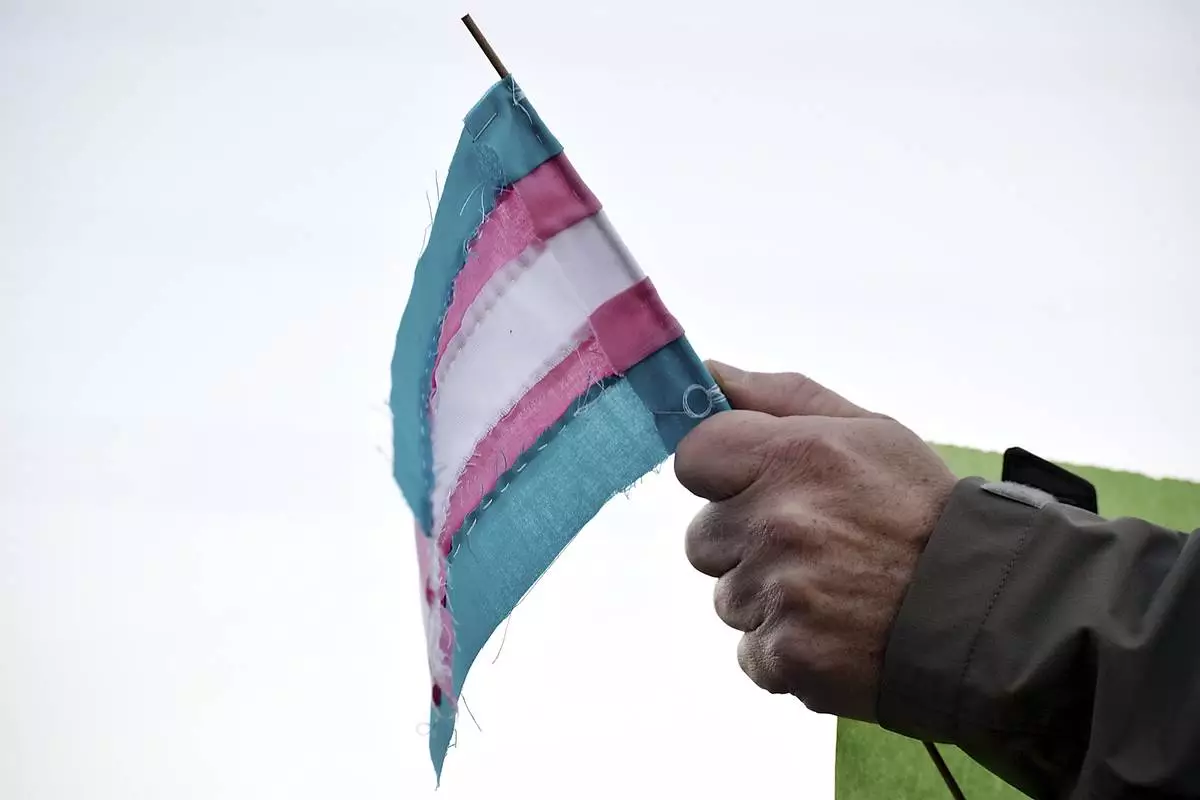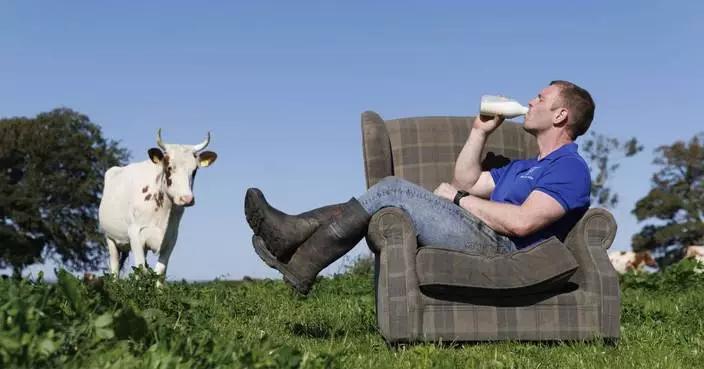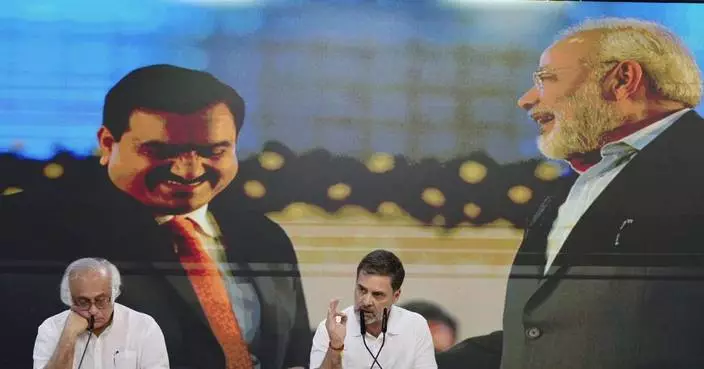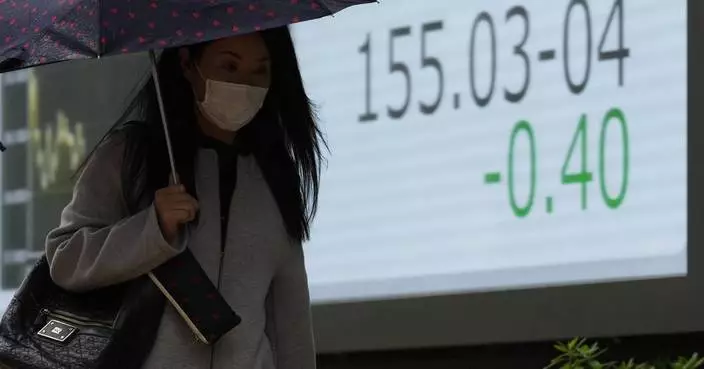LONDON (AP) — British politician John Prescott, a pugnacious and personable former merchant seaman who rose to the post of deputy prime minister in Tony Blair's Labour government, has died at age 86.
Prescott’s family announced his death on Thursday. They said the politician, who had been suffering from Alzheimer’s disease, died in a care home on Wednesday “surrounded by the love of his family and the jazz music of Marian Montgomery.”
The family said Prescott had “spent his life trying to improve the lives of others, fighting for social justice and protecting the environment.”
For a decade, Prescott brought grit, humor and working-class authenticity to the government of the young, polished Blair, who became prime minister in 1997.
“He was one of the most talented people I ever encountered in politics, one of the most committed and loyal, and definitely the most unusual,” Blair said.
An amateur boxer in his youth, Prescott had a defining moment when he punched a man who threw an egg at him during the 2001 general election.
The uproar briefly looked like it might harm the Labour Party, and Prescott’s career. But Blair’s response -– “John is John” -– cemented his folksy status.
Born in north Wales in 1938, Prescott left school at the age of 15 and worked as a cruise ship steward before entering politics through the trade union movement — a once-common route that became less frequent after Blair rebranded the left-leaning party “New Labour” and shifted its politics toward the center,
Prescott was a proud working-class figure in a country that still has few from that background at the top of politics. He unapologetically liked the finer things in life and was nicknamed “Two Jags” by the press because he had two Jaguar luxury cars.
The egg-thrower punching incident earned him another nickname: “Two Jabs."
Prescott served as Blair’s deputy between 1997 and 2007. One of his proudest achievements was working with then-U.S. Vice President Al Gore on the landmark Kyoto Protocol climate change agreement in 1997.
Gore said he had “never worked with anyone in politics — on my side of the pond or his — quite like John Prescott.”
“He fought like hell to negotiate the Kyoto Protocol and was an unwavering champion of climate action for decades to come. I’m forever grateful to John for that commitment to solving the climate crisis and will miss him as a dear friend,” Gore said in a statement.
Prescott helped ease the sometimes tense relationship between Blair and his Treasury chief, Gordon Brown, and acted as a bridge between the party’s traditionalists and Blair’s modernizing faction. Brown said he was key to keeping the party together after Blair’s controversial decision to join the U.S.-led invasion of Iraq in 2003.
Former Cabinet minister Peter Mandelson, a Blair ally, said Prescott was “the cement that kept New Labour together.”
Prescott represented his home city of Hull in northern England for four decades. After Labour lost power in 2010 he was made a member of Parliament’s unelected upper chamber, the House of Lords.
Brown, who succeeded Blair as prime minister, described Prescott as a true working-class hero.
“He wanted the good things in life for everyone and not just himself,” Brown said. “And he showed that Britain can be a country where if you work hard you can fill your potential.”
He is survived by his wife Pauline and sons Johnathan and David.
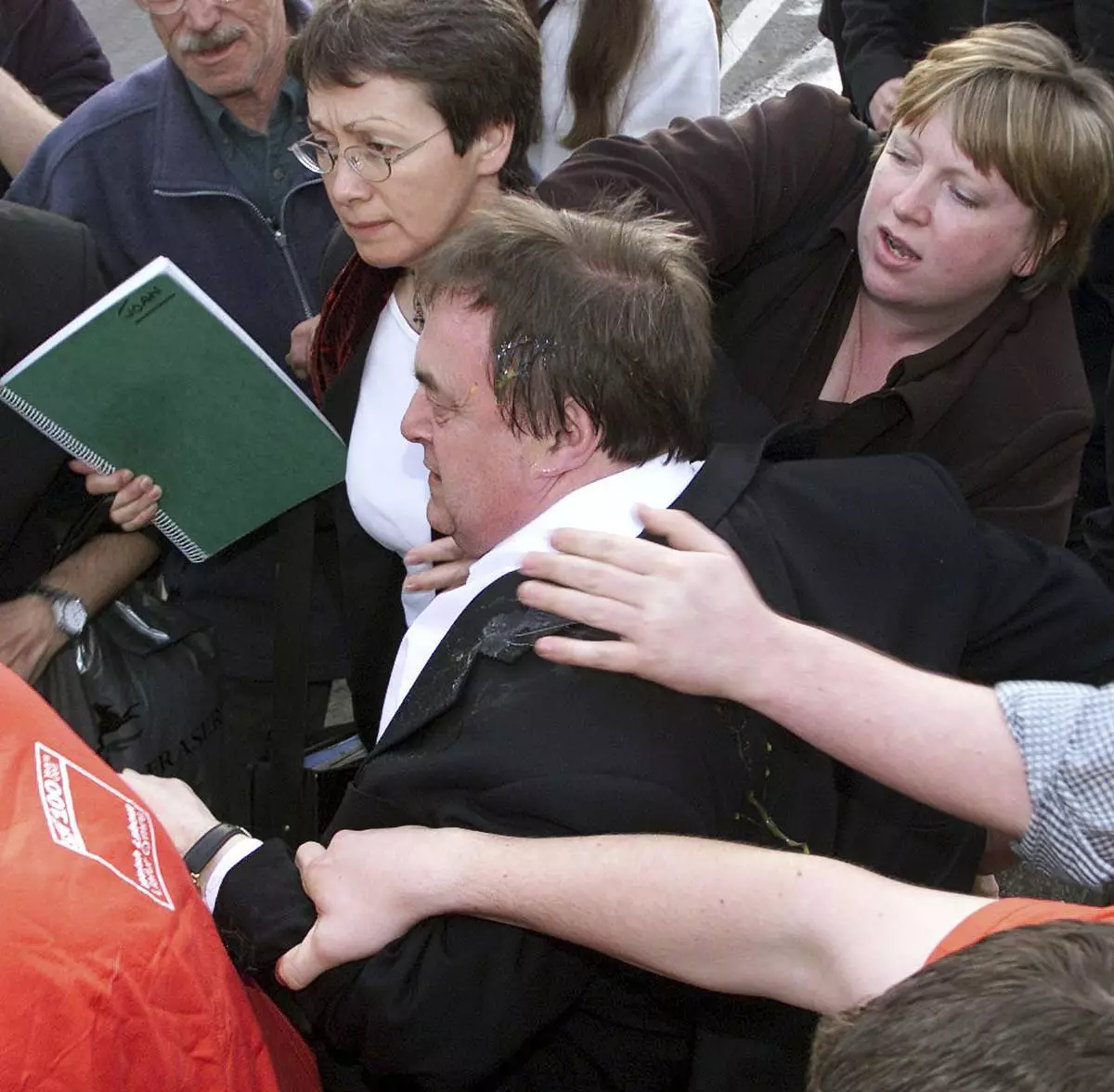
FILE -Britain's deputy prime minister John Prescott, covered in egg and ruffed up, being separated from his attacker, in the North Wales seaside resort of Rhyl where he was to address a Labour Party rally, May, 16, 2001.(David Kendall/PA via AP, File)
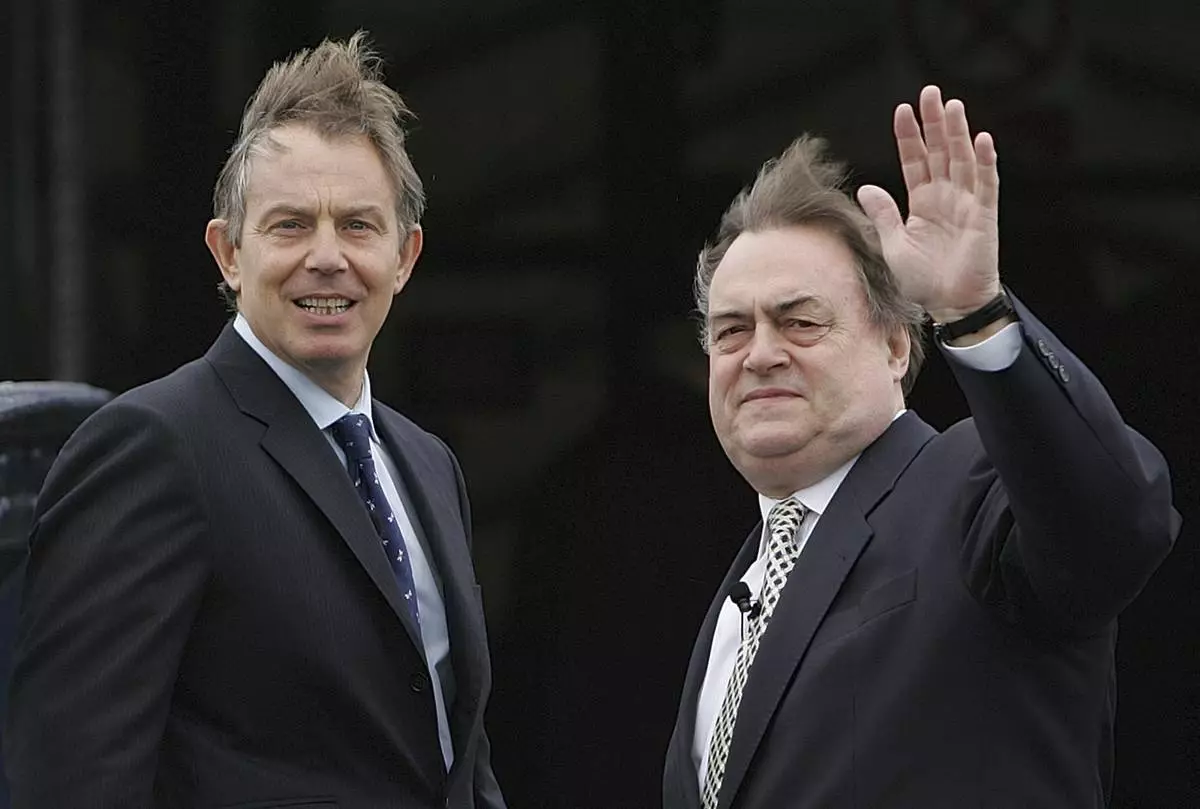
FILE -Britain's Prime Minister Tony Blair, left, turns towards the media with his Deputy John Prescott, on the pier at Gravesend in Kent, England during a visit to promote urban regeneration,March 31, 2005. (AP Photo/Alastair Grant, Pool, File)
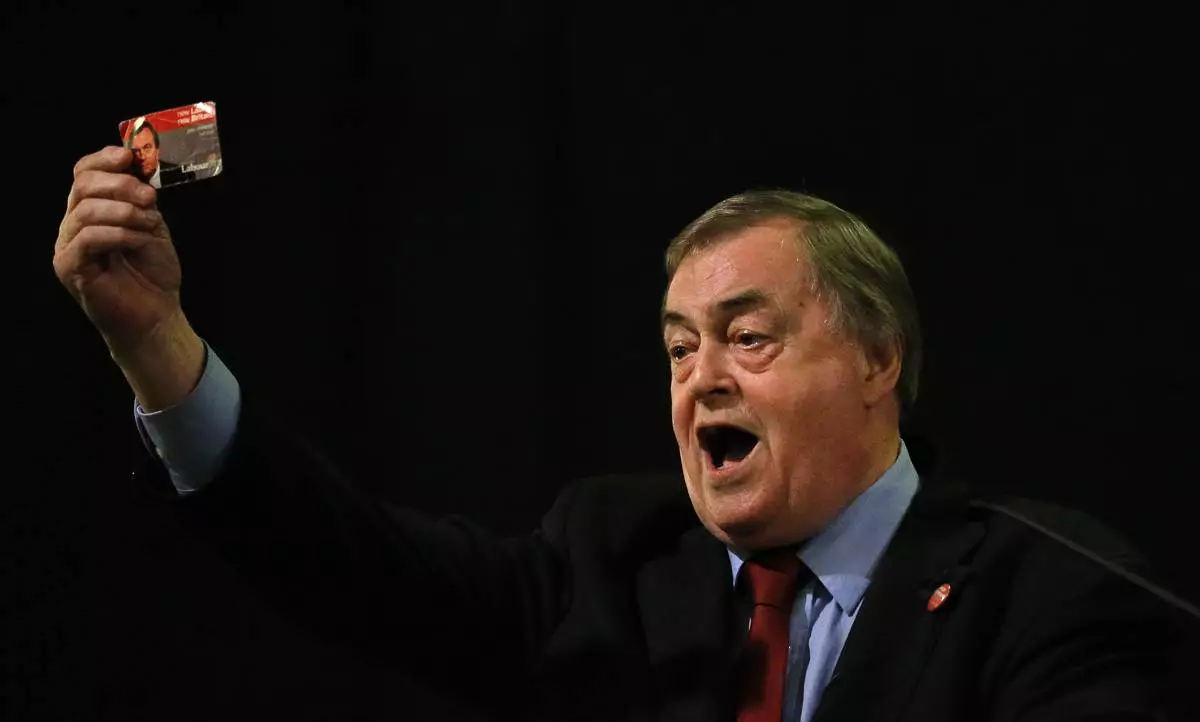
FILE -Former Deputy leader of the Britain's Labour Party, John Prescott, holds up his Labour Party membership card as he gives a speech at a campaign rally for Andy Burnham, the Labour party leadership hopeful, at the St Pancras Parish Church in London, Aug. 24, 2015. (AP Photo/Frank Augstein, File)
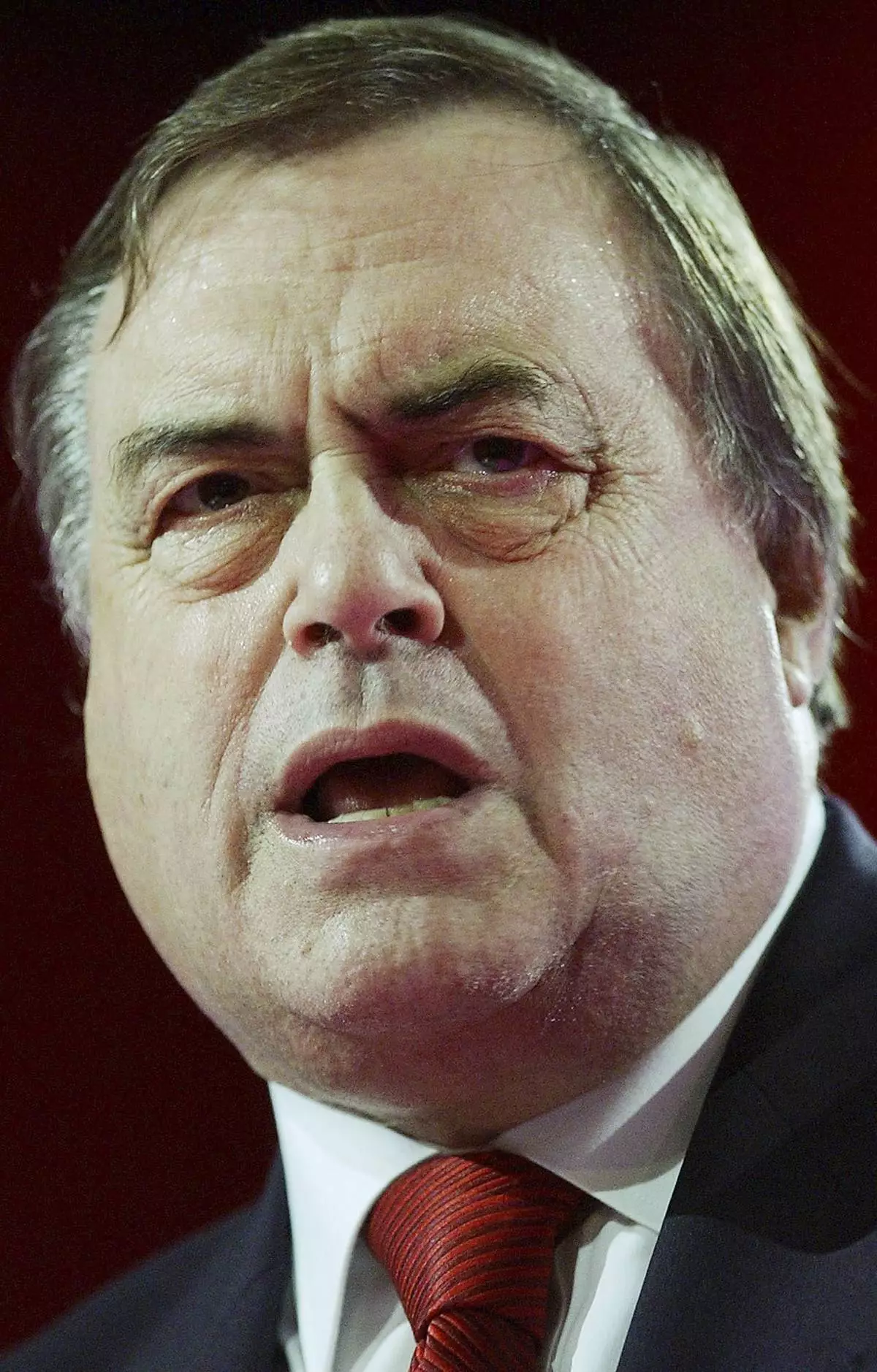
FILE -Britain's Deputy Prime Minister John Prescott during his closing speech, at the Labour Party annual Conference in Brighton, England, Sept. 30, 2004. (AP Photo/Richard Lewis), File)
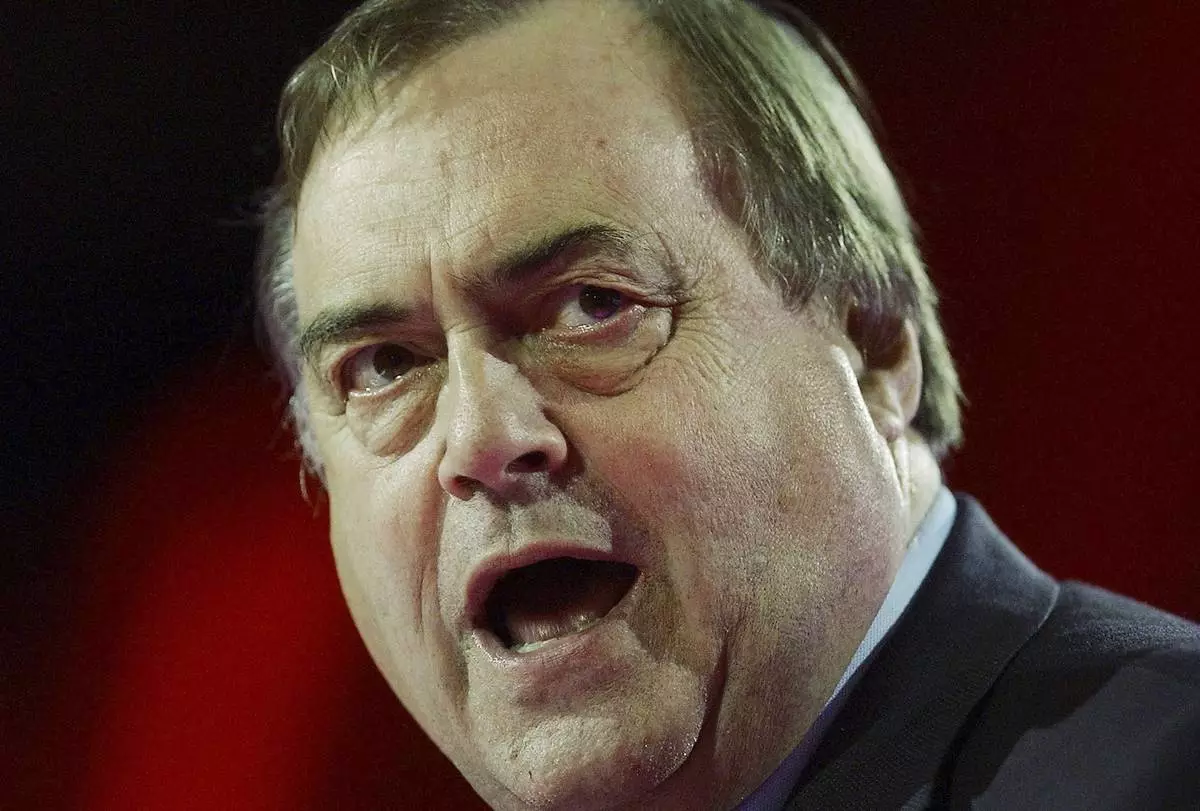
FILE -Britain's Deputy Prime Minister John Prescott as he speaks to delegates at the Labour Party annual conference in Brighton, England, Sept. 26, 2004. (AP Photo/Richard Lewis, File)


